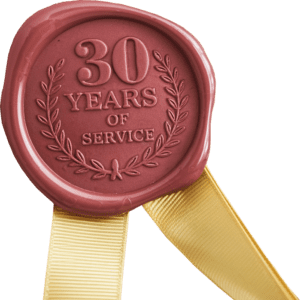10 common causes of CRM failures and how to prevent them.
Many companies struggle to implement and maintain their CRM change programmes. Here are 10 of the most common causes of CRM implementation failures and thoughts on how to prevent them.
1.
Lack of a clear strategy: This strategy should define the objectives, KPIs, and the tactics to achieve the goals. Without a clear strategy, the implementation and management of the CRM system will be unfocused and ineffective.
Solution: State the business problem the CRM is to solve. Seek advice from a partner on realistic timeframes and budgets to achieve your goals. Create clear, measurable goals and KPIs, and share them with all relevant stakeholders.
2.
Poor data quality: Poor data quality can lead to inaccurate information, duplicated records, and unusable experiences. This leads to a lack of trust in the system, uninformed decision-making, missed opportunities, and poor customer service.
Solution: Expect and plan for ongoing data clean-up. If this is your first CRM, then there will be a task to make the data useable. Establish data quality processes that ensure data is accurate and current. Implement data cleansing, de-duplication, and validation procedures. Empower staff where appropriate to take responsibility for ensuring the system is accurate and up to date.
3.
Inadequate user adoption: A CRM system is only effective if it is widely adopted by users. Many companies struggle with user adoption due to a lack of training, bad data (above), incorrect configuration or user-unfriendly interfaces.
Solution: Provide comprehensive training and support to users and make the system as user-friendly as possible. After initial training, check in and offer remedial training for users who may need it. In the initial planning stages, include voices from as many departments as you can to ensure the design is right for all users. Set up super-users within your businesses who other users can trust and come to for advice.
4.
Insufficient customisation: A CRM system needs to be tailored to the specific requirements of your business. A lack of customisation can lead to awkward usage models, inadequate reporting, data analysis, and automation.
Solution: Work with your CRM partner to customise the system to meet your requirements, including data fields, reports, and automation rules. Test, test and test again. Plan for ongoing customisation, as the CRM will need to evolve with your business’s needs.
5.
Poor integration with other systems: To ensure the unified view and customer experience you’re seeking to deliver, your system should be integrated with other systems, such as marketing automation, ERP, and e-commerce. Bad or lack of integration can lead to data silos and inefficiencies.
Solution: Map the flow of data. Decide which system should be the source of truth. For example, CRMs often own contact and sales information, while other systems own financial or marketing data. Ensure that the CRM is integrated with other relevant systems, and test scenarios where data conflict may occur. Also consider time of sync (do you need real-time data, or are scheduled updates sufficient?) Seek advice from your vendor or partner about best approaches.
6.
Lack of executive buy-in: The CRM’s success depends on executive buy-in. Companies that can’t get the necessary support and funding from the executive level often struggle to leverage the value of the system.
Solution: The commissioning of a CRM is a business decision, not a technical one. The leadership groups and executives should be active users of the system and directly benefit from its capabilities. When executives use the system, their support teams will naturally use it as well.
7.
Inadequate ongoing support: Like any business investment, a CRM requires ongoing support to ensure that it remains effective and up-to-date. Many companies fail to provide adequate support, leading to obsolete data, outdated processes, insecure data polices and user frustration.
Solution: Ensure your system is maintained under the appropriate maintenance agreement. Maintenance is an ongoing running cost and should be planned for. A well-maintained CRM running the latest software on a secure server, carefully monitored and updated, will be far more likely to deliver the change and improvements it was commissioned for.
8.
Lack of focus on the customer experience: CRM is all about improving the customer experience, but many organisations skip this aspect of their implementation. A substandard customer experience can lead to lost business and poor brand reputation.
Solution: Understand your customer journey and customer personas. The CRM should be configured to serve these in natural, customer-centric flows. Screen design, automations, integrations and communication functions all play important roles in allowing your staff to serve your customers better.
9.
Inadequate measurement and analysis: Your CRM should be used to measure and analyse customer behaviour, interactions, preferences, and trends. If you don’t analyse the right data, decision making will be affected and you’ll miss out on the upside of data-driven customer insights.
Solution: Most CRMs provide either strong internal reporting or the ability to connect to reporting tools. The issue isn’t so much in the ability to report, but deciding on what to report. Establishing KPIs and measuring those is a natural place to start. Like the rest of the system, the analytics components of a CRM are designed to be flexible, so experiment on the types and frequency of reports might work best.
10.
Resistance to change: A common cause of CRM failure is resistance to change. Employees might resist adopting new systems or processes, leading to poor adoption rates and ultimately, underutilisation, spotty data and low ROI.
Solution: Take on your employees’ concerns and resistance to change through comprehensive change management processes, including communication, training, and support. Involve employees in the CRM implementation as early as possible to increase their buy-in and ownership. Listen to the detractors. Often they have useful insights and if you can address these, they can often become proponents of the system
Well implemented CRMs can drive significant revenue growth and improve customer experiences. But they aren’t silver bullets and do require hard work from all involved in the design, implementation, and end use to bring about this value.


